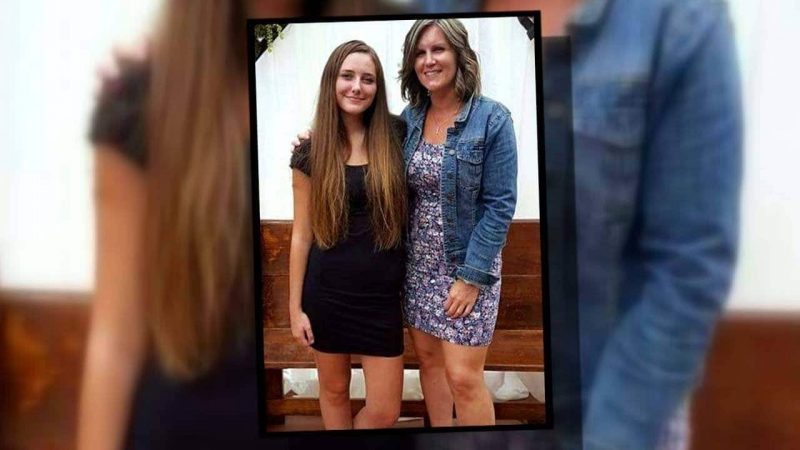I’m a sensitive person. I was the kind of kid who cried over things that probably seemed minor to others. I was in tune with emotions — both my own and those of the people around me. Words hurt. A lot. I remember retreating to the safety of my bedroom after a harsh comment left me sobbing. That became my coping strategy — to play alone. I would play with my dolls, write stories, read Ramona, or draw. I would stay there for hours, calm and happy … and free from my sensitivity for a while.
All parents experience moments of frustration. When you’ve asked your kids to put on their shoes three gazillion times and the shoes are nowhere to be found? When the kids bicker over something so small that you struggle to even understand the source of the problem? Frustration is part of the deal, and sometimes, we say things in the heat of frustration that we shouldn’t. Sometimes, our words hurt.
Whether your child is highly sensitive or not doesn’t really matter. Small words can leave big wounds.
Children internalize the words and feelings of their parents, and negative feedback when they’re at their worst can cause feelings of sadness and anxiety. It can also impact self-esteem.
The truth is that the moment when our kids are at their lowest point is the moment that they need us the most. They need us the most. They need us to love them anyway. They need us to understand. They need unconditional love.
With that in mind, there are some common phrases to avoid using with your kids:
“Be a big boy/girl.”
Contents
Parents often say this to empower kids — to help them make a big transition with ease. They’re big! They can handle it! The intention is usually good – I know you can do this; you just need to believe in yourself.
Here’s the catch: Kids experience fluctuating emotions throughout the day. One minute, they can conquer the world; the next, they want to curl up in your lap for a while. Sometimes they feel big, but sometimes they feel very, very small. Telling a child to “be a big boy” when he doesn’t feel big at all won’t help him make that transition.
Give your kids permission to feel small sometimes. It’s all part of growing up.
“Don’t cry.”
Sometimes this is said during a tantrum. Other times, this is said in an attempt to avoid a meltdown over something. And sometimes it is used to dismiss an event as insignificant. This little phrase sends a terrible message to young kids.
It’s OK to cry. It’s OK to feel overwhelmed sometimes. It’s even OK to be upset when someone takes your toy without asking! When we say “don’t cry,” we dismiss emotions. Children need to learn that all feelings count, and crying is a perfectly acceptable expression of emotion.
Convey your understanding and hold your child close while he/she cries, then talk about ways to feel better and what to do next time.
“There’s nothing to be afraid of.”
I hate to be the bearer of bad news here, but if you have to use this phrase, your child is already afraid. Childhood fears are perfectly normal, and fears change as kids grow. The magical thinking of the early years that triggers fears of monsters and ghosts changes to real-world fears (think earthquakes and death) as kids grow.
Telling your child there’s nothing to fear doesn’t actually eradicate the fear. Try talking about the fear and grounding it in reality while empathizing with the feeling behind it instead.
“You’re fine.”
This one can also be disguised as “walk it off” or “you’re not bleeding” or any other number of slightly dismissive statements. That small scrape might not seem like much to you, but it might feel like a big deal to your child.
Try to consider how your child really feels in the moment. Tired? Embarrassed? Frustrated? Sometimes tears from a scrape mask a bigger feeling. Show a little love and understanding to help your child work through it.
“Because I said so.”
The loose translation of this one is “I’m in charge, and you have no rights.” Sound familiar? Sounds a lot like the thinking of a bully, if you ask me. We all have moments when we just need the kids to do something, and kids don’t need lengthy explanations for every statement we make, but this kind of empty statement doesn’t really give them a reason to stop doing what they’re doing. And, depending on voice tone, it can actually leave kids feeling scared.
Provide simple instructions. Example: Game time is over now. It’s time to turn off the games and start your homework. Repeat as necessary.
“I’ll just do it.”
Little kids don’t always get things right on the first try, and that can lead to tears of frustration. It can also cause parents to jump in and fix everything to stop the tears. Tears of frustration are healthy — kids need to get their feelings out. Running in to fix everything, however, is not so healthy. It sends a clear message: “I can do this; you can’t.”
Try this instead: “That looks super frustrating. I can see why you’re upset. How can I help you with that?”
“Why can’t you be more like …?”
It’s tempting to make comparisons between siblings, cousins, and even friends. It might even feel like making a comparison will inspire your child. What your child hears is this: “You’re no good. Be more like this person, and I’ll love you more.”
All kids are different. They all have different strengths and weaknesses. They all have different personalities and different needs. Comparisons are useless and can lead to hurt feelings.
Get to understand your child’s unique personality and start there.
“Get over it!/Calm down!”
Have you ever tried to calm yourself down with someone standing by telling you to “get over it,” or worse, to “just calm down”? It’s no easy task, I can assure. When people dismiss our feelings, it only makes us more upset!
Help your child learn how to calm down by teaching relaxation breathing. Talk about triggers of frustration instead of dismissing them. Help your child work through his/her emotions so that he/she can feel happy again.


